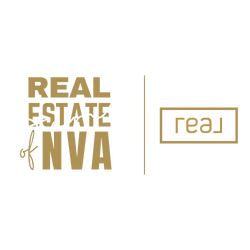1. Do Your Research
If you want to relocate but haven’t yet chosen a new city, it’s important to carefully research your options so you find a destination that suits your lifestyle. First, consider whether you’d prefer living in a major city or a smaller community. While big cities have lots to offer, many people have recently chosen to relocate to smaller cities with lower costs of living. Research the average home value and rent prices across a variety of cities to see what fits in your budget.
Assessing the job opportunities in a potential new city is key, too. Unless you already have a job lined up in your new town, finding work is likely your top priority. Some cities are experiencing a rapid expansion in job opportunities across many sectors, but the job market in other areas is suffering.
You should also research the climate of the city you’re interested in moving to. Some people choose to move to a new city mainly for the change in weather. Others struggle to adjust to a new climate. The weather patterns in your area can have a big impact on your health and happiness, so you should be certain you’ll function well in the climate of your new city.

2. Find a Home
Finding a house or apartment when relocating to a new city can be tricky. Connect with our agents as soon as possible to get the process started.
It’s always best to look at your options in person, but this isn’t always possible with a long-distance move. Virtual tours can be a helpful alternative to in-person tours when moving to a new city. However, you also need to research the surrounding area if you can’t visit in person. You can use Google Maps and Google Street View to check out the neighborhood. Local Facebook groups or other online forums can also be helpful when researching neighborhoods or apartment complexes.

3. Find a Job
Moving to a new city without a job lined up is a risky decision. If you have to move before securing your new job, you should have enough savings to cover your expenses for at least three to six months. Ideally, though, you should find employment before you move.
Tapping into your existing connections is one of the best ways to get leads on job openings in a new city. If you know anyone who has any connection to your new city, ask them if they know employers in the area. LinkedIn, Facebook, and other social media platforms are a great resource when looking for acquaintances who could help you out.
Some people look for remote jobs when relocating because it doesn’t limit the job search to a specific location. While this option is more flexible, it may also make it more difficult for you to make connections in your new city. Meeting people through work is a great way to start making friends and settling into your new community.

4. Start Packing Early
It’s never too early to start packing for your move. As soon as you’re certain you’re going to relocate, start sorting through your belongings. A long-distance move provides a great opportunity to downsize. Getting rid of unwanted or unnecessary items will make the move much easier, and it can help you feel like you’re getting a fresh start in your new city.
Start by packing up non-essentials and items you don’t currently need, such as home decor and off-season clothes. Label each box in detail to make unpacking as easy as possible. You should also organize a box or bag with your essential items that you may need to access immediately after the move. This should include your passport, birth certificate, and other important paperwork as well as any valuable jewelry or heirlooms.

5. Update Your Information After Moving
Once you’ve finally made your move, there are a number of tasks you should complete as quickly as possible. First, contact your utility provider at your old house or apartment to disconnect the services. Then, make sure your utilities at your new home are set up in your name. Call your bank, doctors, insurance providers, and any other companies you’re associated with to inform them of your address change. You can also submit a change-of-address form with the post office so your mail will be forwarded to your new address.
Some cities require pet permits or licenses, so you should check with your local government about registering your pets. You should also inquire about changing your voter registration as different states have different requirements and deadlines for registering to vote. Lastly, you should obtain a new driver’s license and other identity cards with your current address, especially if you’ve relocated to a new state.

6. Settle Into Your New City
Relocating to a new city is a stressful and often lengthy process. After you’ve taken care of all the immediate tasks involved in moving, take some time to explore your new city and meet your neighbors. Building new social connections can be difficult, but it will help your new place feel like home.
Structured group activities and events are a great way to meet people after relocating to a new city. You could check out local exercise classes, sports teams, library events, or volunteer organizations. Local social media pages and groups are also an excellent place to get connected with your neighbors. Leaning into your existing connections is helpful, too. Ask your friends from your old city if they know anyone in the area you’re moving to. Knowing even one person in your new city can make your relocation feel less intimidating.
BOTTOM LINE
Moving to a new city offers an opportunity for growth and change, but uprooting your whole life isn’t easy. To give yourself the best chance of success, you should plan early and carefully for your move. If possible, secure your housing and job before moving. Start preparing for the move as soon as you can, and stay organized throughout the process. Then, when you arrive, you can focus on building a happy and healthy life in your new city.
As always . . .
Be sure to check out the:
- Home Valuation Tool
- Reach out for your personalized Home Value Report
- Calculate your future mortgage
Don’t forget the Home Buying and Selling Guides !
Never miss an issue by subscribing below and I look forward to speaking with you soon about your free Home Preparation and Market Analysis consultation!





